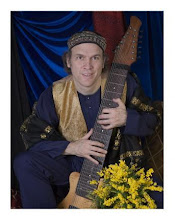One of the things that impresses me about Muhammad's teachings is his ability to unite so many aspects of life into a single religious context. He lived at a time and place when the concept of law and justice was virtually non-existent. What substituted for it was what today we call the concept of Vendetta. The only thing that stopped pre-Islamic Arabia from breaking down into complete chaos was the custom that if anyone stole from or killed anyone in your family, everyone in your family would go after everyone in the criminal's family. Messy, but better than complete chaos. Muhammad replaced this system with a form of law that was based on both justice and forgiveness. By modern standards, it was harsh, but he was dealing with harsh people, and his authority was based on relatively little military power. Applying every aspect of the letter of that law today would violate its spirit, but it was almost perfectly adapted to his time, and thus remains one of the world's great achievements.
There was no point in Muhammad's time of talking about separation of Church and State, because Muhammad had to create both himself. As Karen Armstrong once wrote, Muhammad could not say "Render unto Caesar what it is Caesar's" because he had no Caesar to render unto. Similarly, Muhammad also incorporated not just law, but personal hygiene into his religious practices. Imagine living in a hot dusty climate, where it was almost impossible to find water for drinking, let alone washing. Then imagine what it would be like to begin every act of prayer with cleaning yourself carefully, so that cleaning of the body was always deeply linked with cleaning of the soul. What a powerful union of soul and body that must have created, what an exhilarating sense of purity and peace. This would make one want to wash more often and pray more often, linking both spiritual and physical health. Is it surprising that so many of Muhammad's contemporaries felt that he had brought them into a whole new way of living and being? Is it surprising that only two years after the treaty of Hudaibiyah, Muhammad follows had added 10,000 Meccans to his original community of 1400, and was thus able to take over the city without any bloodshed?
Do these rituals still have the same power today, in Societies with temperate climate and water on tap? Some people think so. If I were a Muslim, I would probably keep these rituals, or try to. Cleanliness is about as universal a virtue as you will find. Unlike many of the other decisions that Muhammad had to make there is no real problem in interpreting them in a modern context.
One irony, however, is that because people in Muhammad's time could not afford to keep themselves as clean as we do today, these rituals might have less impact now, because cleanliness is often practiced for its own sake, and thus not as inevitably conjoined with rituals connected with Godliness.
Tuesday, January 26, 2010
Subscribe to:
Post Comments (Atom)

No comments:
Post a Comment